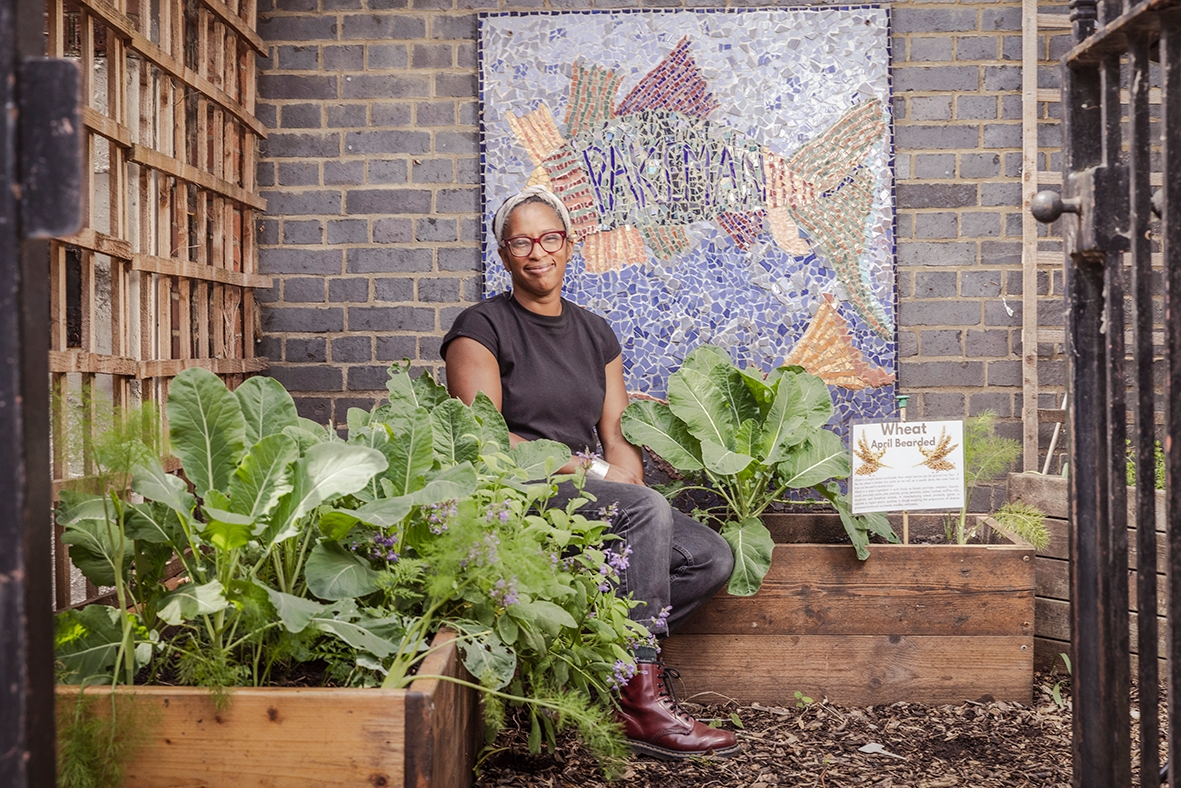Its puns are many, its passion for better bread singular. The Real Bread Campaign aims to improve loaves for everyone, whether you’re interested in local food, transparent labelling, therapeutic baking or just tasty toast
Companions are the people we break bread with. The word is derived from the old French compaignon, literally ‘one who breaks bread with another’, and based on the Latin com (‘together with’) and panis (‘bread’). From Spanish and Italian to Finnish and Russian, the word exists in many languages. Bread connects us, materially and symbolically to each other.
The UK’s Real Bread Campaign has been sharing ways of making bread better for us and for the planet for 15 years. Driven by a bold ambition that touches on politics, education, public health, farming systems and food production to name but a few, its mission starts with a clear, simple and accessible definition of ‘real bread’: bread made without chemical raising agents, so-called ‘processing aids’ or other additives.
“I love knowing that we’re helping ever more people enjoy delicious, nutritious, additive-free food,” says Chris Young, campaign coordinator since 2009. “I love hearing about the joy and sense of achievement people get from making their own bread and seeing this in their smiles. I love knowing how our work is helping people set up and run small, successful businesses. I love that we promote actions that are better for the environment, better for local economies and communities, better for people’s heath and – one I sometimes forget because it is subjective – better for flavour.”
Part of the food and farming charity, Sustain, the Real Bread Campaign runs many projects and enterprises that focus on different aspects of its vision. The campaign lobbies the UK government to adopt its proposals for an Honest Crust Act: to update and improve the composition, labelling and marketing standards of bread, to give people the chance to make better-informed choices about what they buy. In the past, Together We Rise oversaw therapeutic and social baking initiatives; No Loaf Lost helped small bakeries reduce surplus and waste; and Knead to Know is a manual for microbakeries.
Sourdough September is a longstanding initiative to encourage people to buy or bake their own additive-free sourdough bread. A current project is Bake Your Lawn, which teaches children how real bread starts in a field, not a factory: from a handful of wheat and a square metre of soil, the guidebook supports adults in leading kids in a hands-on-journey of discovery, from seed to sandwich.
“Real bread shouldn’t be a secret kept from kids, or indeed anyone,” says Young. “It’s true that small real bread bakeries, which help keep our high streets alive, simply can’t put a loaf on the shelf at the same price as a supermarket stocking an additive-laden, industrial dough product.”
But the campaign’s Real Bread For All guidance encourages more bakeries to run ‘pay-it-forward’ and other schemes that offer bread at a more affordable price, to people on the tightest budgets in the bakeries’ closest communities.
Don’t forget too, that real bread can also be made at home for pence, notes Young. And he is working to get real bread on the menus of more public sector institutions, where people can enjoy it at a subsidised price, or even without having to pay, as in free school meals. There’s a collaboration with the Soil Association to ensure that serving real bread helps caterers gain points towards its Food for Life accreditation. And most recently, Young has been chatting with Chefs in Schools – a charity that enlists chefs to improve school dinners – about how we get more real bread on their menus.
Real bread shouldn’t be a secret kept from kids, or indeed anyone
How to further advance the democratisation of good bread? Young would prefer to see “scaling out” rather than scaling up. He coined the term ‘sourfaux’ a few years ago to capture a wariness of large companies producing and selling various attempts at read bread through the supermarkets.
Instead, he would like to see the jigsaw building via lots of small pieces, rather than a few bigger ones: more micro-bakeries, an expanded network of regional, non-commodity grain networks across the country, more working mills and a patchwork of small, organic farms growing heritage grains at small scale. Young is particularly inspired by the growth in regional grain networks – there are now eight in the UK and one in Ireland – which bring together growers, millers, bakers and brewers to produce ‘better bred bread’.
“Actually, there is inspiration everywhere you look at the moment,” Young enthuses. Amid a much longer list, he mentions the UK Grain Lab, the School of Artisan Food and The Clink and Freedom bakeries, the latter two of which train prisoners in baking. “There are so many,” Young laughs. “Sometimes I feel like I’m contractually obliged to say real bread is on the rise, but right now it really is.”
-
10,000
+children benefited from the Bake Your Lawn and Lessons in Loaf project
-
5,000
copies of the campaign’s microbakery handbook sold
-
660
+bakeries that sell additive-free bread listed on the Real Bread Map
-
130
+bakeries are signed up to The Real Bread Loaf Mark scheme
Be part of the solution
Positive News is helping more people than ever to get a balanced and uplifting view of the world. While doom and gloom dominates other news outlets, our solutions journalism exists to support your wellbeing and empower you to make a difference towards a better future.
But our reporting has a cost and, as an independent, not-for-profit media organisation, we rely on the financial backing of our readers. If you value what we do and can afford to, please get behind our team with a regular or one-off contribution.
Give once from just £1, or join 1,400+ others who contribute an average of £3 or more per month. You’ll be directly funding the production and sharing of our stories – helping our solutions journalism to benefit many more people.
Join our community today, and together, we’ll change the news for good.

